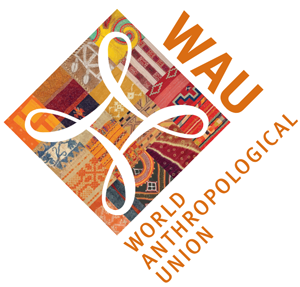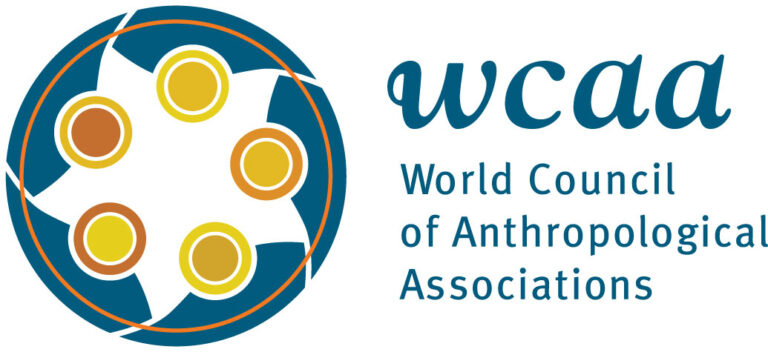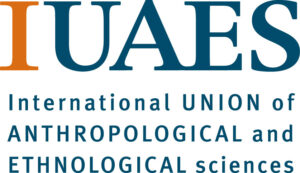Questions for Journal Editors for the Tenth Anniversary of Deja Lu
Interview with Lino Meneses, editor of the journal Boletín Antropológico, from the Universidad de Los Andes (ULA), Venezuela, by Lía Ferrero Translated by Lía Ferrero from Spanish
21 December 2021
Lía Ferrero: So tell me a bit about the journal, how long has it been out. It’s a university journal from what I understand.
Lino Meneses: Boletín Antropológico is a journal that was started by a professor, Jaqueline Clarac, together with the professors Ariel Lucena Goyo, who is also an anthropologist, the anthropologist Jorge Armand and a French anthropologist Alex Lhermillier, all of them professors at the Universidad de Los Andes (ULA). It began in 1982 as a journal of the Department of Anthropology and Sociology of the Faculty of Humanities and Education of the ULA. In Venezuela, in that decade, in the eighties of the twentieth century, there were many publications, and nowadays it is the only anthropological journal which is published on a regular basis; there are others that are in full operation and have maintained their permanent regularity, but they are not anthropology journals as such. We have just published issue 102, which is the second issue of this year (2021) and it has been maintained over time. Boletín Antropológico is the only Venezuelan journal specializing in anthropology that is fully operational, that maintains its regularity and that is included in important indexing databases such as the Emerging Sources Citation Index of the Web of Sciences, Redalyc, Latindex, Clase, BIBLAT and Revencyt.
L: Do you publish two issues per year?
M: We do publish two issues a year. It is a biannual journal that is free and open access, not just open access because, as you know there are many open-access journals that charge authors to publish. We don’t charge anything, it is open access at all levels because we are committed to this philosophy in terms of the transmission of knowledge and learning.
As I said, it is a biannual journal, but at first it was published three or four times a year, which meant very big effort. The format has changed: It began as a printed journal in 1/8 (letter size) format and then, from issue 32 onwards, changed to 1/16 size. Later, due to the economic situation in Venezuela and the technological advances associated with the internet and networks, it was also published in an online format, and today we only have it as a digital journal.
L: How long has it been an online journal?
M: From issue 81 onwards, published in 2011, the Boletín became a fully electronic journal. However, it is important to note that from issue 60, published in 2004, the journal also began to be published in online format in the institutional repository of the Universidad de Los Andes, maintaining the printed version at that time. In 2011, Venezuela was beginning to feel the crisis, the budgets of Venezuelan universities were being reduced, which led to significant cuts in science funding, and this reality resulted in the loss of funding for the printing of the journal. At that time we opted for an online journal because we had the university’s institutional repository.
The journal is in the repository: www.saber.ula.ve/boletin_antropologico. Due to financial problems we have not been able to migrate it to OJS, which is a very important goal we have. With the migration to the OJS system in mind, we have managed to digitize almost the entire collection, but the COVID-19 pandemic, which paralyzed face-to-face activities in Venezuela for practically the whole of 2020 and almost the whole of 2021, delayed the migration. We currently have on the journal’s website issue 34 to issue 102, the latter corresponding to Vol. 2 July-December 2021.
L: And the editorial process then, how do you do it? From the moment you receive an article, what is the process with each article?
M: We have two issues per year, as I mentioned: one issue is open (not thematic) for publishing articles we receive through our institutional email, and the other issue publishes contributions solicited by the university. All articles are first reviewed by the Arbitration Board, which is guided by the code of ethics and good editorial practices of our journal. The purpose of this first review is to observe whether the articles comply with the journal’s rules for the elaboration of articles. The technical review of the article examines the title, abstract, keywords, citation, bibliography format, the institutional affiliation of the authors, whether they have ORCID; we run an anti-plagiarism programme, among others, in short, a technical review of the article received. The articles are then sent for peer reviewing under the double-blind modality. If there are contradictions between the referees, in general a third party is contacted and, as with all journals, the recommendation as to whether it can be published, and whether it can be published if it is modified, is made.
L: Are these peer-reviewers national, international or both?
M: The referees are national and international, according to their expertise and the needs we have regarding the articles to be refereed, but not only in the Arbitration but also in the Editorial Committee there is participation of international and national anthropologists; three colleagues are from the University de Los Andes, the rest are international. We rotate the Editorial Committee once a year, to bring in new generations so that they are trained in the editorial process; they are new researchers from ULA, and for us this is very important because it allows us to have a new generation to take over and thus give the journal a long life. One of the characteristics of the Editorial Board is that it is currently made up of colleagues from different continents, most of whom have done research in Venezuela. We have an Advisors’ Committee and a Refereeing Committee also with colleagues from different European and Latin American universities.
L: Are they all Spanish-speaking, or do you also receive articles in another languages?
M: In general, they are bilingual. Recently, due to the need to further internationalize the journal, we have also published in English and Portuguese. We recently have had two articles in English from the United States, and two from Brazil in Portuguese.
L: So you receive articles from Venezuelan colleagues but also from other parts of the world in Spanish, English and Portuguese?
M: Yes, we started it from issue 100 onwards, which is very significant because in Venezuela the production of anthropological texts decreased significantly due to the economic and social crisis that has impacted science in our country, which was mainly done in universities.
L: You told me that each year the first journal is non-thematic and the other calls on colleagues according to a pre-defined topic, but could you say that there are some specific areas in which the journal is focused?
M: With anthropological issues we are a bit traditional. In Venezuela we still have a strong American heritage. We criticize it, we consider ourselves politically anti-imperialist; however, we have this heritage that is very difficult to counteract because the fundamental center for the training of anthropologists in Venezuela, the School of Anthropology of the Central University of Venezuela, maintains its organizational structure tied to the American heritage, which is why the subjects of Venezuelan anthropology are inserted in that tradition: physical anthropology, linguistic anthropology, sociocultural anthropology and archaeology. For these reasons we receive articles from colleagues in these fields.
Also, what happens is that we have a limitation. Today many journals in the anthropological field – and many in many other countries – are indexed, which as we know is a colonial fact. Today, thanks to the science policies of many states, researchers are forced to publish in journals indexed in high-impact indexing databases, such as Scopus, for example; in this context, there are a number of researchers who seek to publish in journals that are in those indexing databases. Our Boletín is in Latindex, Redalyc and in the Emerging Sources Citation Index (ESCI) of the Web of Science; we are in the middle of this confrontation. We are critical of measuring our journal by the system of metrics imposed by the corporations that seek to monopolize the world of scientific publishing; we are critical of this system that is the product of the application of neoliberal policies.
L: How many articles do you publish per issue on average?
M: We publish 6 articles, 9 articles…
L: That’s quite a lot!
M: Oh my friend, well, you are in the editorial field, you know, nowadays, those are the numbers that the metrics measure; we struggle, but to some colleagues they are undoubtedly significant. We are asked to increase the number of articles published by our journal in order to increase the so-called editorial effort, which is nothing more than the number of articles generated by our journal during a year in terms of the average base of production in the anthropological field. According to Redalyc, we are at 0.74, that is, close to 1, which is the average number of articles in other journals in our discipline in Latin America. We design the journal, we lay it out by ourselves, we have to, we don’t have money to pay for designers or anything, so sometimes we have articles that are late, and yet people trust us. For next year, for the first issue we are going to publish on “Women, Work and Violence,” and the other one we have planned is on the problem of “Covid and the Anthropology of Health.”
L: So you have no budget for the journal?
M: Zero budget
L: Not even for proofreading, nothing?
M: Nothing. We used to have funding through organizations such as the Workshop for Scientific and Humanistic Development (CDCHTA) from our university, but not anymore. And from the university, unfortunately the budgetary constraint is also very strong there. It’s quite a dramatic situation, dramatic because our salaries, well, we don’t even reach a hundred dollars, we don’t even reach fifty dollars, so, well, we are always on a hunt, looking for possibilities; we have dedicated ourselves to presenting various projects here and there, constantly on the move in order to carry out research and keep the journal active. Our motto this year was not to lose what we have achieved with so much effort and next year the motto is the same because we will continue to fight for what we are doing.
L: That is a serious commitment to publishing because it is true that most publications in Latin America don’t have a paid editorial team, but at least they have some budget for some more technical issues, design, proofreading. From what you are telling me, you don’t have any of that.
M: Yes, it is a serious commitment and even more so because everything we do, everything is totally ad honorem because we believe in open science for the common good, not for profit, and everything is open access, although we do receive contributions. Of the 65 journals that the university has, not all are active due to the economic crisis that is hitting the university and the country hard. About 10 publications—and ours is one of them—are going to have DOI, thanks to a solidarity campaign; the colleagues of the editorial committee donated the resources to pay for DOI because we have no budget and we cannot charge the authors for the editorial processes associated with the journal.
L: Sure, because DOI is paid in dollars. Anything else you want to tell me before we finish the interview?
M: I also want to tell you that the journal is linked to a research center such as the Archaeological Museum of the Universidad de Los Andes; in this center we have a public library specialized in anthropology and archaeology and two laboratories, one for conservation and restoration of archaeological objects and the other for archaeology and palaeobotany. The museum is also a space for training because it is also home to the university’s Master’s Degree in Ethnology, Mention in Ethnohistory, and the PhD in Anthropology. Our Museum, as a research center and as a training school, also allows Boletín Antropológico to have immense potential as a journal. As a publication specializing in anthropology in our country, it is of the utmost importance in these times of crisis. We are not a private institution, we are a public institution that carries out research and anthropology in a militant way, so that we can make it possible, which leads us to assume political responsibilities alongside and in favor of the great majorities of the country, who are the most affected by the economic and social crisis that Venezuela is currently experiencing.



